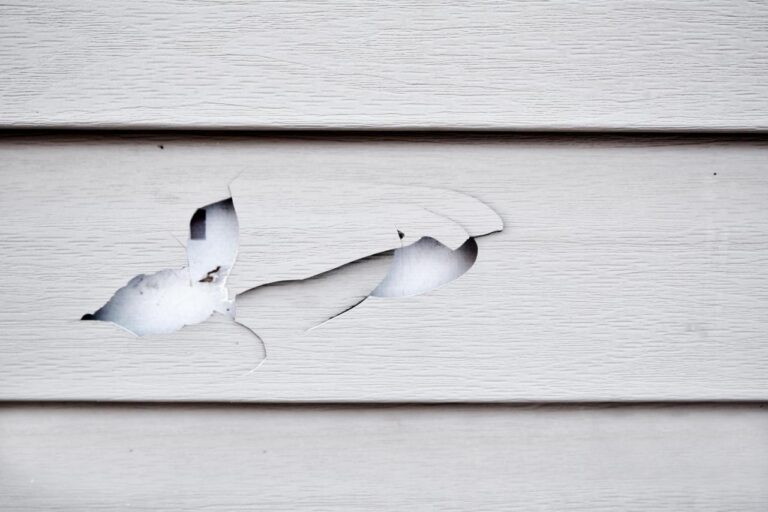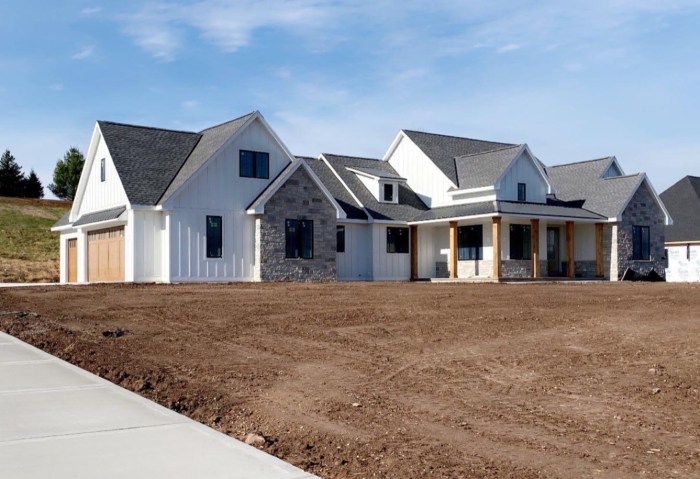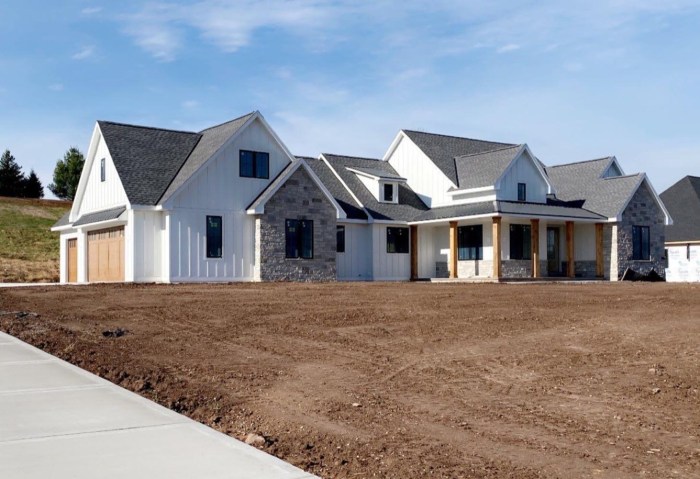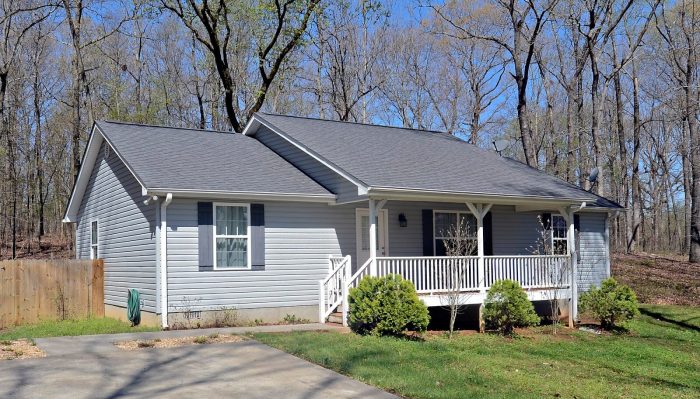Best Vinyl Siding Companies Near Me
The best vinyl siding companies near me are crucial for a successful home improvement project. Choosing the right contractor can save you time, money, and headaches. This guide will walk you through finding, evaluating, and selecting the best vinyl siding companies in your area, ensuring your project meets your needs and expectations.
From understanding vinyl siding materials and their properties to comparing contractor quotes and warranties, this comprehensive resource provides a step-by-step approach. We’ll cover everything from initial research and contractor qualification to installation considerations and long-term maintenance. This will help you make informed decisions and confidently select the ideal company for your vinyl siding needs.
Introduction to Vinyl Siding
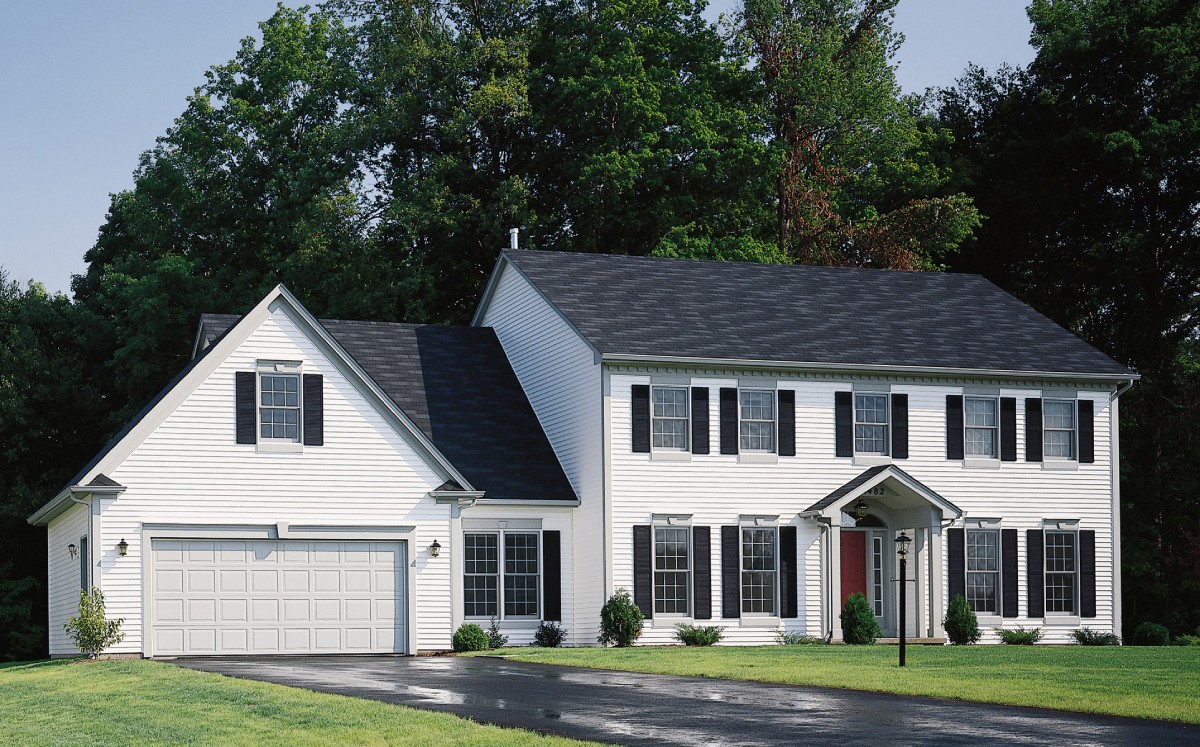
Source: thermalkingwindows.com
Vinyl siding, a popular exterior cladding option, is a synthetic material crafted from polyvinyl chloride (PVC). Its versatility and relatively low maintenance make it a compelling choice for homeowners seeking durable and aesthetically pleasing siding. This material is resistant to rot, insect damage, and extreme weather conditions.
This material offers a wide range of colors and textures, allowing homeowners to personalize their home’s exterior. Furthermore, its adaptability to various architectural styles makes it a versatile choice for different homes. Understanding the nuances of vinyl siding, including its types, benefits, and drawbacks, can help homeowners make informed decisions when selecting exterior cladding.
Vinyl Siding Materials and Properties
Vinyl siding is a synthetic material, primarily composed of polyvinyl chloride (PVC). Its inherent properties make it a suitable alternative to traditional materials like wood or aluminum. Key characteristics include its resistance to moisture, pests, and rot, along with its low maintenance requirements. The material is also readily available in a wide range of colors and styles, making it aesthetically appealing.
Common Types of Vinyl Siding
Different types of vinyl siding offer various aesthetics and functional attributes. Smooth vinyl siding, for example, is a classic choice known for its clean lines and simple design. Textured vinyl siding, on the other hand, mimics the look and feel of wood or other natural materials, offering a more varied and visually appealing exterior. Other types include board and batten, which emulates traditional wood siding, and fiber cement siding, a hybrid product that combines the aesthetic appeal of natural wood with the durability of vinyl.
Benefits of Vinyl Siding Compared to Other Materials
Vinyl siding offers several advantages over other exterior cladding materials. Its resistance to moisture, insects, and rot is a significant benefit, particularly in areas prone to humidity or pest infestations. Compared to wood siding, vinyl requires minimal maintenance, reducing the need for painting, sealing, or other upkeep. Furthermore, vinyl is generally more affordable than other high-quality siding materials, such as cedar or composite.
Drawbacks of Vinyl Siding Compared to Other Materials
While vinyl siding has numerous advantages, some drawbacks should be considered. One potential drawback is its susceptibility to damage from impact, although this is often mitigated through proper installation techniques. Vinyl siding can also be more susceptible to discoloration from prolonged sun exposure, although this can be addressed through proper application and maintenance. In comparison to natural materials, vinyl siding may not always provide the same aesthetic appeal, particularly in terms of the natural grain or texture.
Comparison Table: Vinyl Siding vs. Other Materials
| Characteristic | Vinyl Siding | Wood Siding | Aluminum Siding |
|---|---|---|---|
| Cost | Generally moderate | Can be higher | Generally moderate to high |
| Durability | Resistant to rot, insects, and moisture; moderate impact resistance | Prone to rot, insects, and moisture; moderate durability | Highly durable; resistant to dents and weather; low maintenance |
| Maintenance | Low; requires occasional cleaning | High: Requires regular painting, sealing, and repairs | Low; requires occasional cleaning |
Finding Local Companies
Locating reputable vinyl siding companies near you is a crucial step in the home improvement process. Careful selection ensures quality workmanship, competitive pricing, and a positive experience throughout the project. This section details effective methods for finding qualified contractors.
Finding the right vinyl siding contractor involves more than just a quick online search. A thorough approach, combining online resources with local networking, maximizes the chances of choosing a suitable professional for your project.
Methods for Locating Contractors
Various methods can help you find local vinyl siding companies. Exploring online directories, reviewing local business listings, and seeking recommendations from friends and family can all contribute to a robust pool of potential contractors.
Online Resources for Finding Contractors
Leveraging online resources is a convenient way to identify potential contractors. Online directories, review platforms, and specialized contractor websites provide comprehensive listings and essential information.
- Online Business Directories: Many online business directories specialize in local businesses, providing detailed contact information, services offered, and customer reviews. Examples include Yelp, Google My Business, and specialized home improvement directories.
- Review Websites: Review sites like Angie’s List, HomeAdvisor, and Houzz offer user-generated reviews and ratings of contractors. These reviews provide valuable insights into the quality of work, professionalism, and customer satisfaction.
- Specialized Contractor Websites: Some websites are dedicated to connecting homeowners with contractors specializing in vinyl siding installations. These platforms often offer streamlined communication and project management tools.
Comparing Online Platforms
Different online platforms for finding contractors have distinct strengths and weaknesses. A comparative analysis helps in making informed choices.
| Platform | Pros | Cons |
|---|---|---|
| Yelp | Extensive user reviews, easy to filter by location and services. | Reviews may not always be entirely objective, some information might be outdated. |
| Angie’s List | Detailed contractor profiles and verification processes for businesses. | Subscription-based access to some features; reviews might be limited. |
| Houzz | Visual portfolio showcasing previous projects with a variety of contractor types. | It may have a higher cost for premium features. |
| Google My Business | Free, integrated with Google search, often highly visible. | Limited review space, no dedicated contractor focus. |
Questions to Ask Potential Contractors
Thorough questioning during initial contact is essential for selecting a reliable contractor. This step ensures alignment on project expectations and potential issues.
- Project Timeline: Inquire about the expected timeline for the entire project, including installation, cleanup, and completion. This ensures realistic expectations and helps you anticipate potential delays.
- Warranty Information: Request detailed information about the warranties offered for the materials and labor. This safeguards against unforeseen issues arising after the installation.
- Pricing Breakdown: Obtain a comprehensive breakdown of the pricing structure, including material costs, labor charges, and any associated fees. Ensure clarity on payment terms and methods.
- References: Request contact information for references or previous clients. Follow up with references to gather insights into the contractor’s performance and professionalism.
- Insurance Information: Inquire about the contractor’s insurance coverage, particularly liability insurance, to protect you from potential risks during the installation process.
Evaluating Contractor Qualifications
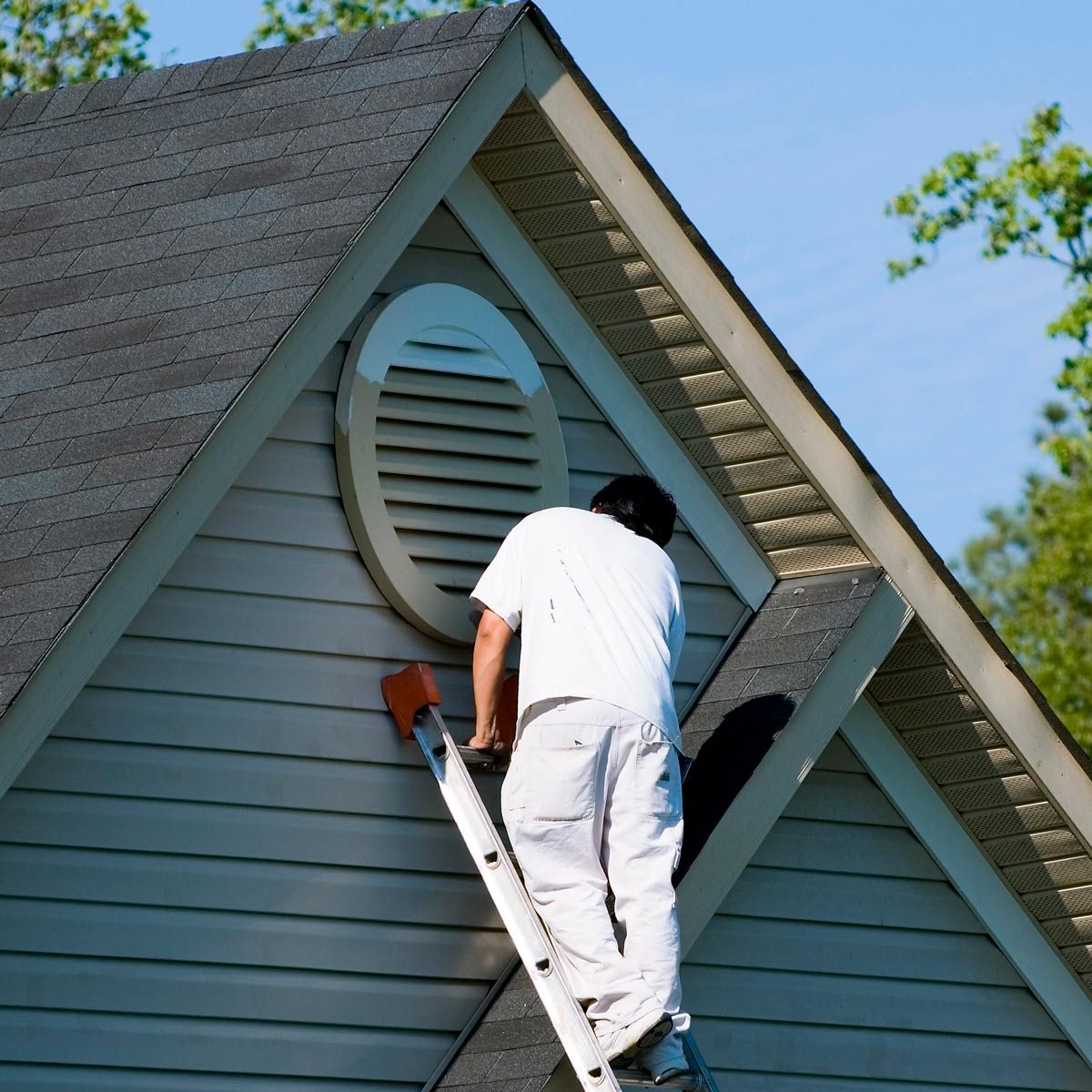
Source: easy-home-repair-tips.com
Choosing the right vinyl siding contractor is crucial for a successful project. A qualified contractor will ensure the job is done correctly, adhering to building codes and industry standards and minimizing potential issues in the future. Thorough evaluation of potential contractors is key to avoiding costly mistakes.
Selecting a qualified vinyl siding contractor requires careful consideration of their expertise, experience, and commitment to quality. This includes checking for licenses, insurance, and verifiable experience to ensure they are equipped to handle the project effectively.
Contractor Licenses and Insurance
A contractor’s license is a crucial indicator of their legitimacy and adherence to local regulations. It verifies that they have met the requirements to operate legally in the area. Insurance is equally important as it protects both the homeowner and the contractor in case of accidents or damages during the installation process. This safeguards the homeowner’s investment and provides a safety net for any unforeseen circumstances.
- A valid contractor’s license demonstrates that the company has met local licensing standards and regulations, ensuring compliance with building codes and industry best practices.
- Liability insurance protects the homeowner against potential damages or injuries during the siding installation process.
- Workers’ compensation insurance covers any injuries sustained by the contractor’s employees on the job site, offering a safety net for both the employees and the homeowner.
Contractor Experience and Certifications
A contractor’s experience level significantly impacts the quality of the work. Years of experience often translate to a deeper understanding of various siding installation techniques, allowing for more efficient and precise work. Specialized training or certifications in vinyl siding installation further highlight the contractor’s expertise and commitment to maintaining high-quality standards.
- Experience with different types of vinyl siding, installation methods, and various weather conditions is crucial.
- Certifications from reputable organizations demonstrate the contractor’s commitment to quality and adherence to industry standards.
- A contractor with experience in similar projects can provide valuable insights into potential challenges and solutions.
Verifying Contractor Licenses and Insurance
Verifying a contractor’s license and insurance information is essential. This process can be streamlined by contacting the local licensing board or insurance agency directly.
- Contact the relevant local government agency to confirm the contractor’s license is valid and active.
- Verify the contractor’s liability and workers’ compensation insurance coverage with the insurance provider.
- Review the contractor’s license and insurance documents to ensure they meet all requirements and are up-to-date.
Understanding Quotes and Estimates
A crucial step in any home improvement project, including vinyl siding installation, is carefully reviewing the contractor’s quote or estimate. This document articulates the proposed work, costs, and timeline, allowing you to make an informed decision. A clear understanding of these elements is essential to avoid unpleasant surprises later.
A well-prepared estimate serves as a roadmap for the project, providing a transparent view of the entire process from start to finish. It allows you to compare different bids from various contractors, identify potential issues, and ultimately select the most suitable option for your needs. Understanding the details within an estimate is paramount to making an informed decision and avoiding hidden costs.
Elements Typically Included in a Vinyl Siding Estimate
Estimates for vinyl siding installation typically detail various aspects of the project. These documents should include a clear description of the scope of work, including the specific areas to be covered, the type of vinyl siding selected, and any necessary preparation work. Detailed specifications, including the chosen siding’s dimensions, color, and material grade, are critical to ensuring a consistent result.
Importance of Project Timelines and Costs
Understanding project timelines and costs is vital for proper planning. A well-defined timeline, broken down into manageable phases, helps you visualize the entire process and anticipate potential delays. This includes the installation timeframe, material delivery, and any necessary permits. Cost breakdowns, clearly outlining labor costs, material costs, and potential permit fees, help you budget effectively. A realistic timeline, considering all potential factors, minimizes uncertainties and reduces project stress. Realistic cost estimations, including potential contingency allowances, ensure you’re prepared for any unexpected expenses.
Checking for Hidden Fees or Additional Charges
It’s critical to scrutinize the estimate for any hidden fees or additional charges. A thorough review of all clauses, including details on insurance, warranties, and any extra services, is vital. Pay close attention to clauses concerning unforeseen site conditions, weather-related delays, or extra labor needed for complex areas. Always ask clarifying questions about any unclear or ambiguous terms in the estimate.
Sample Vinyl Siding Estimate
| Item | Description | Labor Cost | Material Cost | Permit Cost |
|---|---|---|---|---|
| Preparation | Demolition, cleaning, and site preparation | $1,500 | $200 | $0 |
| Installation | Vinyl siding installation | $3,000 | $4,000 | $0 |
| Permitting | Obtaining necessary permits | $0 | $0 | $150 |
| Warranty | Siding and labor warranty | $0 | $0 | $0 |
| Total | Total Cost | $4,500 | $4,200 | $150 |
This sample estimate provides a general illustration of costs and does not represent a fixed price for all vinyl siding projects. Actual costs will vary depending on specific project requirements and location.
Comparing Contractor Options
Choosing the right vinyl siding contractor is crucial for a successful project. A thorough comparison of different bids, considering factors beyond price, is essential for making an informed decision. This process ensures that the selected contractor aligns with your project goals and budget.
Careful evaluation of contractor bids, encompassing price, quality, and service, is paramount. Beyond the initial cost, factors such as reputation, customer service, and warranty terms play a significant role in the overall project experience.
Contractor Bid Comparison Method
A systematic approach to comparing contractor bids is vital. This involves meticulously reviewing the proposed price, the quality of materials, and the scope of services offered. Comparing different quotes, not just price, helps determine the most suitable option for your needs.
Factors Beyond Price
Price is only one aspect of a comprehensive evaluation. Reputation, customer service, and warranty details should also be carefully scrutinized. A contractor with a strong reputation often translates to a smoother project experience and higher quality work. Excellent customer service is crucial during the project’s duration and beyond. A robust warranty demonstrates the contractor’s confidence in their work and offers protection against potential issues.
Contractor Warranties and Limitations
Contractor warranties vary considerably. Some common types include material warranties, labor warranties, and extended warranties covering specific elements. Understanding the specific terms of each warranty is critical. For example, a material warranty might cover defects in the siding itself, while a labor warranty might address issues related to installation. It’s essential to carefully examine the limitations of each warranty, including exclusions and the duration of coverage. Reviewing previous customer testimonials and feedback can provide valuable insight into a contractor’s performance and reliability. Consider whether the warranty covers labor and materials, the duration of the warranty, and any exclusions or limitations. A thorough understanding of warranty terms will prevent future issues and ensure a protected investment.
Example Contractor Quote Comparison
The following table compares three quotes from different contractors, highlighting key differences in pricing, timelines, and services. This example helps illustrate how to evaluate bids effectively.
| Contractor | Price | Timeline (Weeks) | Services Included | Warranty |
|---|---|---|---|---|
| ABC Siding | $10,000 | 8 | Siding installation, cleanup, permits | 10-year material, 5-year labor |
| XYZ Home Improvements | $9,500 | 6 | Siding installation, minor repairs, gutter installation | 7-year material, 3-year labor; extended warranty for $500 |
| Pro Vinyl Solutions | $11,000 | 10 | Siding installation, insulation upgrade, and exterior trim | 12-year material, 10-year labor; additional coverage for high-wind areas |
Note that this is a simplified example. A real-world comparison would involve a more detailed examination of specific warranty terms, exclusions, and any additional costs.
Choosing the Right Company: Best Vinyl Siding Companies Near Me

Source: thumbtack.com
Selecting the right vinyl siding contractor is crucial for a successful and lasting project. A reputable company with a proven track record will ensure your siding installation meets your expectations, both aesthetically and functionally. Careful consideration of various factors, including contractor reviews, verifiable references, and clear communication, can significantly impact the outcome of your siding project.
Making the final decision about which contractor to hire requires a thorough evaluation process. This involves weighing the strengths and weaknesses of each option, understanding their approach to the work, and assessing their commitment to customer satisfaction. The information presented here will guide you through the essential factors to consider when making your choice.
Contractor Reviews and Testimonials
Contractor reviews and testimonials offer valuable insights into the experiences of previous clients. These sources provide firsthand accounts of the contractor’s work ethic, communication style, and overall professionalism. Reading through these reviews can help you identify potential issues or strengths associated with a particular company. Look for patterns in the feedback, such as consistent praise for a specific aspect of their work or recurrent complaints about a particular area.
Verifying Contractor References and Past Projects
Before committing to a contractor, it’s vital to verify their references. This involves contacting past clients directly to inquire about their experiences. Direct communication allows you to ask specific questions about the quality of the work, the timeframe for completion, and the level of communication maintained throughout the project. Furthermore, inspecting completed projects firsthand, if possible, allows you to assess the quality of the installation in a physical environment. Observe the materials used, the craftsmanship displayed, and the overall appearance of the completed work.
Checklist for an Informed Decision
A well-structured checklist can help you organize your decision-making process. This structured approach ensures you don’t overlook any crucial factors.
- Company Reputation: Research the company’s online presence, looking for reviews and testimonials. Assess their reputation among industry peers and local communities.
- Contractor Qualifications: Verify the contractor’s licenses, insurance, and any relevant certifications. Ensure they have the necessary expertise and experience in vinyl siding installations.
- Project Timeline: Discuss project timelines and potential delays with the contractor. Understand their approach to managing the project and their commitment to meeting deadlines.
- Communication: Assess the contractor’s communication style and their responsiveness to your inquiries. A clear and efficient communication process is vital for a smooth project.
- Pricing and Payment Terms: Carefully review the proposed quote and payment terms. Understand the costs associated with materials, labor, and any additional fees. Compare quotes from different contractors to ensure fair pricing.
- Warranty and Guarantees: Inquire about the warranty offered on the materials and workmanship. A strong warranty demonstrates the contractor’s confidence in their work.
- Insurance and Bonding: Confirm that the contractor carries the necessary liability insurance and bonding to protect you in case of unforeseen issues during the project.
- Local Permits: Confirm the contractor’s familiarity with local building codes and permits for siding installations.
- Additional Services: Ask about any additional services the contractor offers, such as cleanup or removal of old siding.
- Final Walkthrough: Schedule a final walkthrough to ensure the project meets your expectations before final payment.
Considerations for Installation
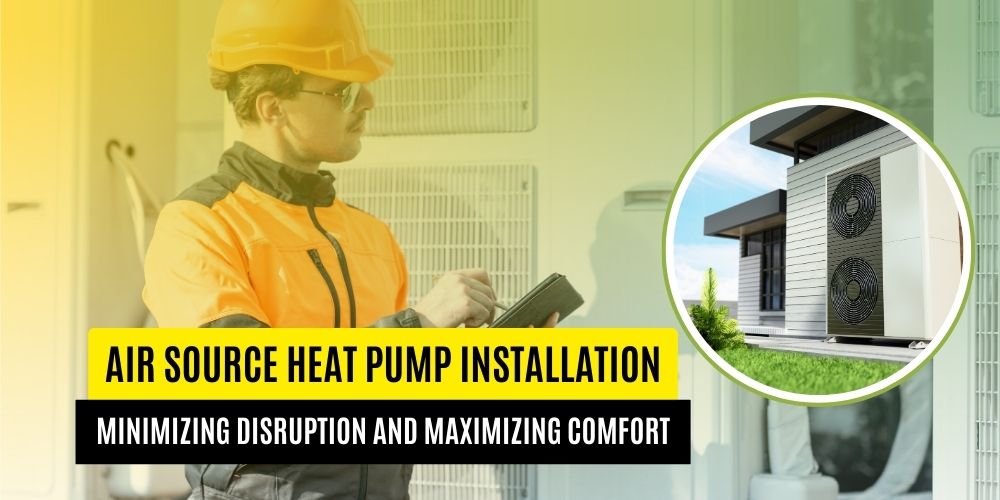
A meticulous vinyl siding installation is crucial for a lasting, aesthetically pleasing, and durable result. Poor installation can lead to premature damage, water intrusion, and a compromised overall appearance. Choosing a contractor with experience and a proven track record in this area is paramount to achieving a high-quality final product.
Careful planning and execution during the installation phase are essential for the longevity and visual appeal of your vinyl siding project. Factors such as the specific house style, architectural features, and potential challenges unique to your home must be considered. This section details key aspects to ensure a smooth and successful installation.
Importance of a Thorough Installation Process
A thorough installation process ensures the longevity and effectiveness of the vinyl siding. This involves precise measurements, proper anchoring, and attention to detail throughout the entire procedure. Correct installation techniques are crucial to prevent issues such as gaps, misaligned panels, and inadequate sealing. This, in turn, safeguards your home from potential water damage and maintains the aesthetic appeal of your siding for years to come.
Factors Impacting Installation Time, Best vinyl siding companies near me
Several factors can influence the duration of the vinyl siding installation. These include the size and complexity of the house, the amount of existing siding that needs to be removed, the availability of materials, and the number of workers on the job site. Weather conditions also play a significant role. A skilled contractor can provide an estimated timeframe based on the specifics of your project, ensuring a realistic expectation of the installation duration.
Considerations for Different House Styles and Architectural Features
Different house styles and architectural elements necessitate unique installation approaches. For instance, homes with complex rooflines, multiple levels, or intricate architectural details may require specialized techniques to ensure proper panel alignment and seamless transitions. Similarly, older homes with existing siding that needs to be replaced might have hidden issues or varying wall conditions, which may extend the installation time. Understanding these nuances allows the contractor to devise the best approach and mitigate potential challenges.
Examples of Common Installation Challenges and Solutions
Common installation challenges include uneven walls, the presence of obstacles like chimneys or windows, and unusual architectural features. For uneven walls, shimming and adjusting the panels are necessary to achieve a level surface. Obstacles like chimneys and windows require precise cutting and careful placement to avoid gaps and maintain the structural integrity of the siding. Specialized techniques are often used to manage the challenges posed by unusual architectural elements. Experienced contractors are adept at handling these issues with effective solutions, leading to a quality installation.
Maintenance and Long-Term Care
Proper maintenance of your vinyl siding is crucial for its longevity and aesthetic appeal. Regular cleaning and preventative measures can significantly extend the lifespan of your siding, minimizing costly repairs and preserving its attractive appearance. By following a consistent maintenance schedule, you can ensure your investment remains in top condition for years to come.
Maintaining your vinyl siding is more than just a matter of keeping it clean; it’s a proactive approach to preventing costly damage and maintaining its structural integrity. A well-maintained vinyl siding system will resist the elements, retain its color, and uphold its structural integrity, ultimately saving you money in the long run.
Regular Cleaning Practices
Regular cleaning is essential to prevent the buildup of dirt, grime, and mildew that can compromise the siding’s appearance and longevity. A simple cleaning routine can significantly impact the overall condition of your vinyl siding. Use a soft-bristled brush or a garden hose with a nozzle to remove loose debris. For stubborn stains or mildew, a mild detergent solution can be effective.
- Use a soft-bristled brush or a garden hose with a nozzle to remove loose debris.
- For stubborn stains or mildew, a mild detergent solution can be effective. Test the solution on an inconspicuous area first to ensure it doesn’t damage the siding.
- Rinse thoroughly with clean water to remove all traces of cleaning solution. Avoid using harsh chemicals or abrasive cleaners, which can damage the vinyl siding.
Protecting Vinyl Siding
Protecting your vinyl siding from the elements is equally important for its long-term health. Consider using a protective sealant or high-quality paint to help shield the siding from the effects of UV rays, rain, and other weather conditions. This can significantly extend its lifespan.
- Apply a sealant specifically designed for vinyl siding to create a protective barrier against the elements.
- Regular inspections for any signs of damage, such as cracks or discoloration, are essential for preventing potential issues.
- High-quality paint designed for exterior use can also offer additional protection against UV rays, moisture, and other environmental factors.
Addressing Common Maintenance Issues
Over time, vinyl siding can experience issues like discoloration, fading, or damage from impact or weather events. Identifying and addressing these problems promptly can prevent further deterioration.
- Discoloration: This often results from prolonged exposure to sunlight and can be addressed with a professional cleaning service or a specialized siding cleaner.
- Fading: UV rays from the sun are the primary cause of fading. Consider a protective sealant to minimize the impact of the sun.
- Impact Damage: Small dents or scratches can be addressed with touch-up paint or a professional repair service.
Maintenance Schedule
A well-structured maintenance schedule helps to ensure your vinyl siding remains in optimal condition.
| Task | Monthly | Quarterly | Annual |
|---|---|---|---|
| Inspection | Visually check for loose debris, damage | Thorough visual check for damage, mildew | Complete inspection for cracks, leaks, and structural damage |
| Cleaning | Hose down as needed | Deep clean with mild detergent | Pressure washing (if needed), sealant application |
| Protection | Monitor weather conditions | Re-apply sealant as needed | Professional inspection and repair |
Epilogue
In conclusion, finding the best vinyl siding company near you involves careful research, evaluation, and comparison. By considering factors like contractor qualifications, project estimates, and long-term maintenance, you can confidently choose a company that meets your specific needs and budget. Remember to prioritize reputable contractors with proven experience and a commitment to quality workmanship. This thorough approach ensures a smooth and successful vinyl siding installation, enhancing your home’s value and curb appeal for years to come.
